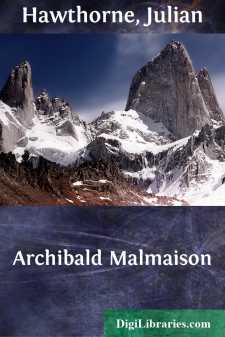Categories
- Antiques & Collectibles 13
- Architecture 36
- Art 48
- Bibles 22
- Biography & Autobiography 815
- Body, Mind & Spirit 144
- Business & Economics 28
- Children's Books 18
- Children's Fiction 14
- Computers 4
- Cooking 94
- Crafts & Hobbies 4
- Drama 346
- Education 58
- Family & Relationships 59
- Fiction 11829
- Games 19
- Gardening 17
- Health & Fitness 34
- History 1378
- House & Home 1
- Humor 147
- Juvenile Fiction 1873
- Juvenile Nonfiction 202
- Language Arts & Disciplines 89
- Law 16
- Literary Collections 686
- Literary Criticism 179
- Mathematics 13
- Medical 41
- Music 40
- Nature 179
- Non-Classifiable 1768
- Performing Arts 7
- Periodicals 1453
- Philosophy 65
- Photography 2
- Poetry 896
- Political Science 203
- Psychology 44
- Reference 154
- Religion 515
- Science 126
- Self-Help 85
- Social Science 82
- Sports & Recreation 34
- Study Aids 3
- Technology & Engineering 59
- Transportation 23
- Travel 463
- True Crime 29
Our website is made possible by displaying online advertisements to our visitors.
Please consider supporting us by disabling your ad blocker.
The History of the United States from 1492 to 1910, Volume 1 From Discovery of America October 12, 1492 to Battle of Lexington April 19, 1775
by: Julian Hawthorne
Categories:
Description:
Excerpt
INTRODUCTION
When we speak of History, we may mean either one of several things. A savage will make picture-marks on a stone or a bone or a bit of wood; they serve to recall to him and his companions certain events which appeared remarkable or important for one or another reason; there was an earthquake, or a battle, or a famine, or an invasion: the chronicler himself, or some fellow-tribesman of his, may have performed some notable exploit. The impulse to make a record of it was natural: posterity might thereby be informed, after the chronicler himself had passed away, concerning the perils, the valor, the strange experiences of their ancestors. Such records were uniformly brief, and no attempt was made to connect one with another, or to interpret them. We find such fragmentary histories among the remains of our own aborigines; and the inscriptions of Egypt and Mesopotamia are the same in character and intention, though more elaborate. Warlike kings thus endeavored, from motives of pride, to perpetuate the memory of their achievements. At the time when they were inscribed upon the rock, or the walls of the tombs, or the pedestals of the statues, they had no further value than this. But after the lapse of many ages, they acquire a new value, far greater than the original one, and not contemplated by the scribes. They assume their proper place in the long story of mankind, and indicate, each in its degree, the manner and direction of the processes by which man has become what he is, from what he was. Thereby there is breathed into the dead fact the breath of life; it rises from its tomb of centuries, and does its appointed work in the mighty organism of humanity.
In a more complex state of society, a class of persons comes into being who are neither protagonists, nor slaves, but observers; and they meditate on events, and seek to fathom their meaning. If the observer be imaginative, the picturesque side of things appeals to him; he dissolves the facts, and recreates them to suit his conceptions of beauty and harmony; and we have poetry and legend. Another type of mind will give us real histories, like those of Herodotus, Thucydides, Tacitus and Livy, which are still a model in their kind. These great writers took a broad point of view; they saw the end from the beginning of their narrative; they assigned to their facts their relative place and importance, and merged them in a pervading atmosphere of opinion, based upon the organic relation of cause and effect. Studying their works, we are enabled to discern the tendencies and developments of a race, and to note the effects of civilization, character, vice, virtue, and of that sum of them all which we term fate.
During what are called the Dark Ages of Europe, history fell into the hands of that part of the population which alone was conversant with letters—the priestly class; and the annals they have left to us have none of the value which belongs to the productions of classical antiquity. They were again mere records; or they were mystical or fanciful tales of saints and heroes, composed or distorted for the glorification of the church, and the strengthening of the influence of the priests over the people....











